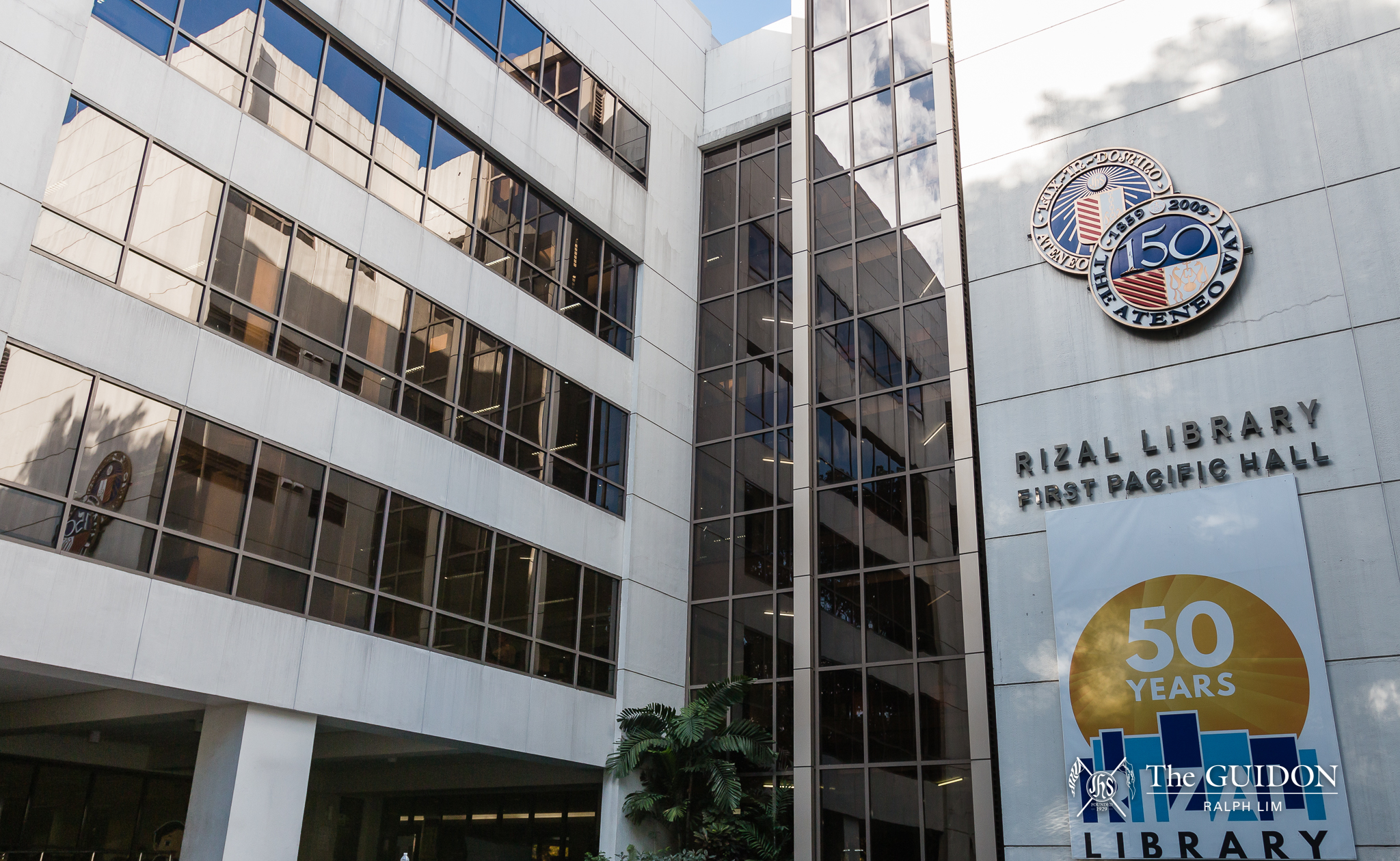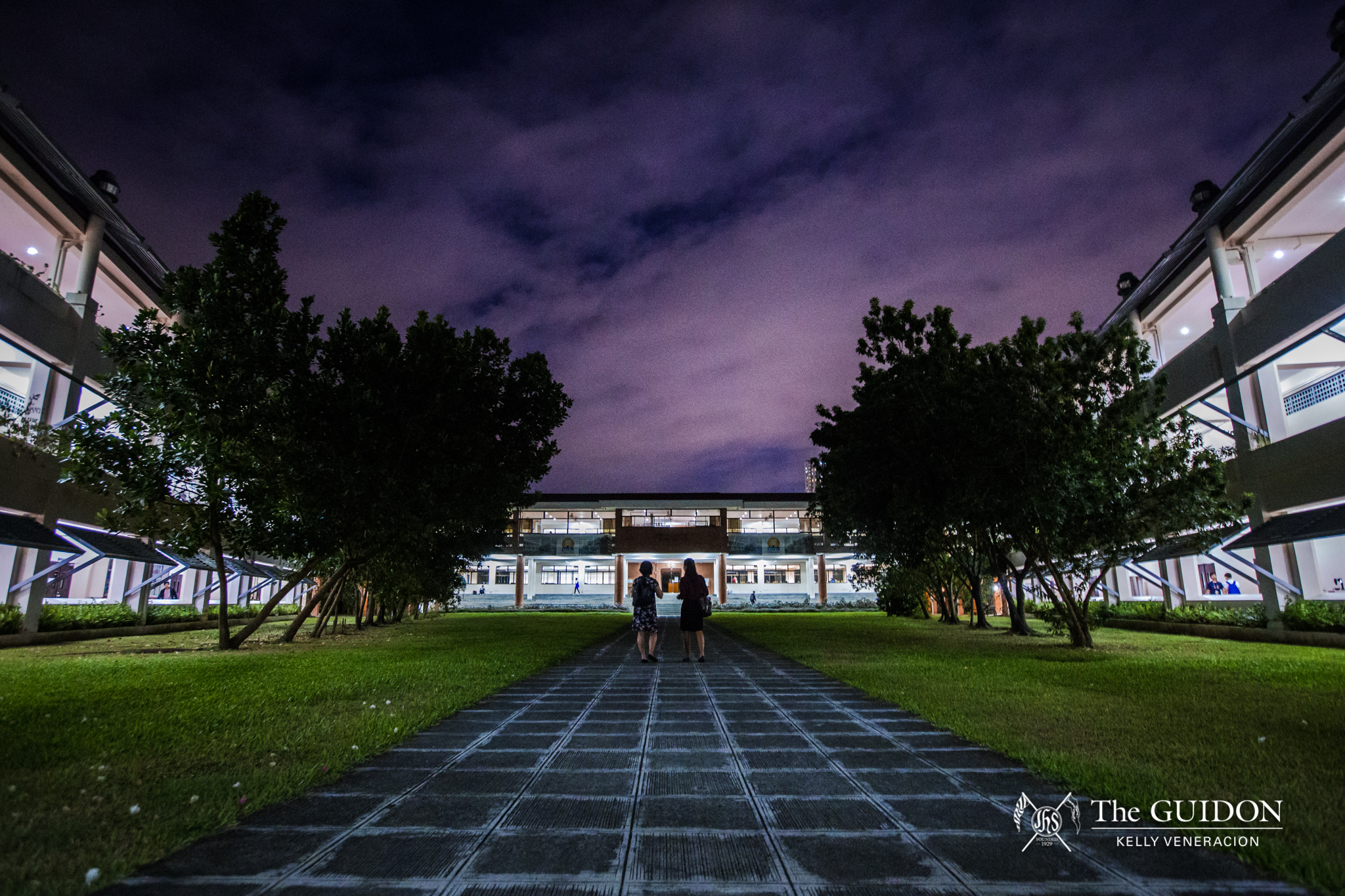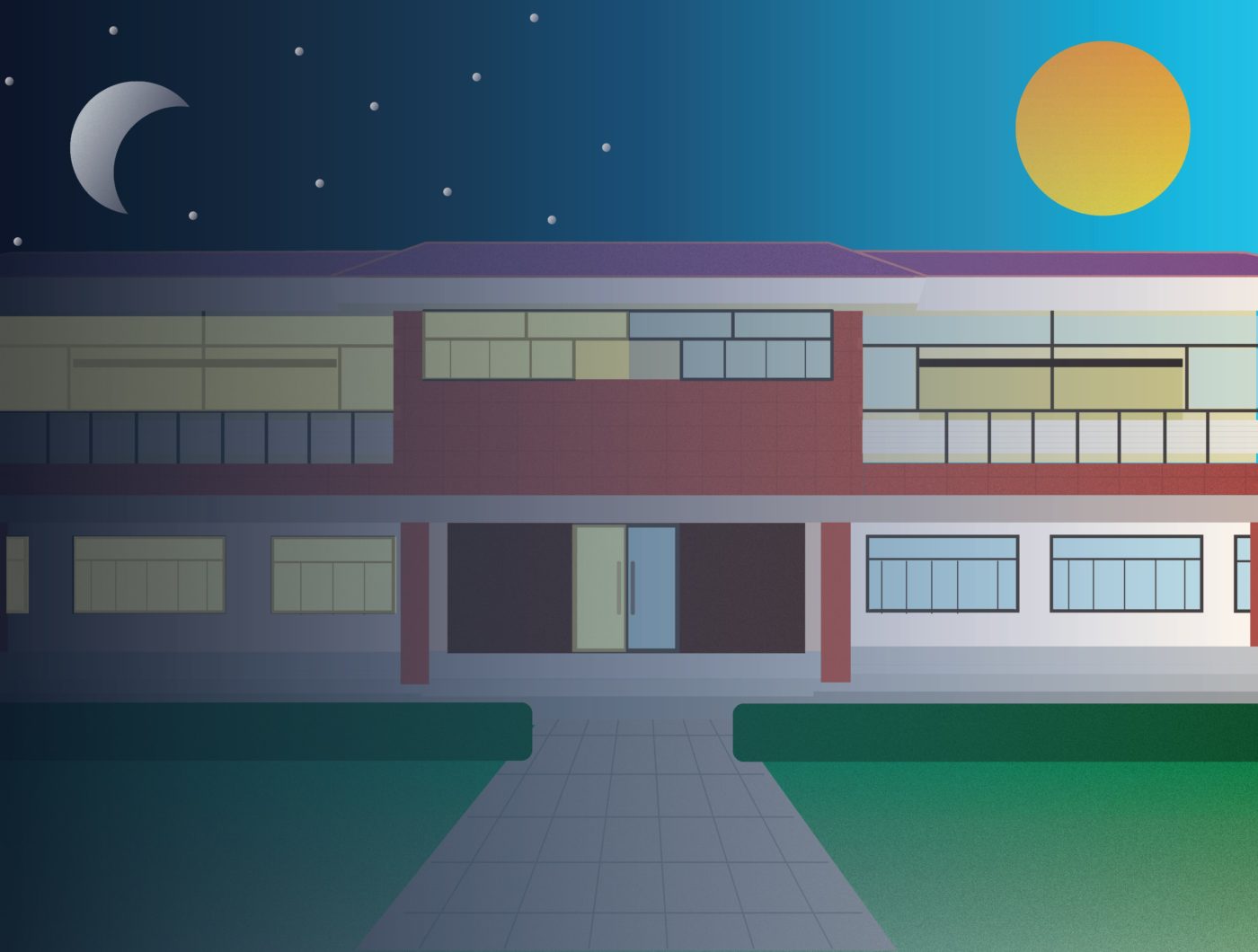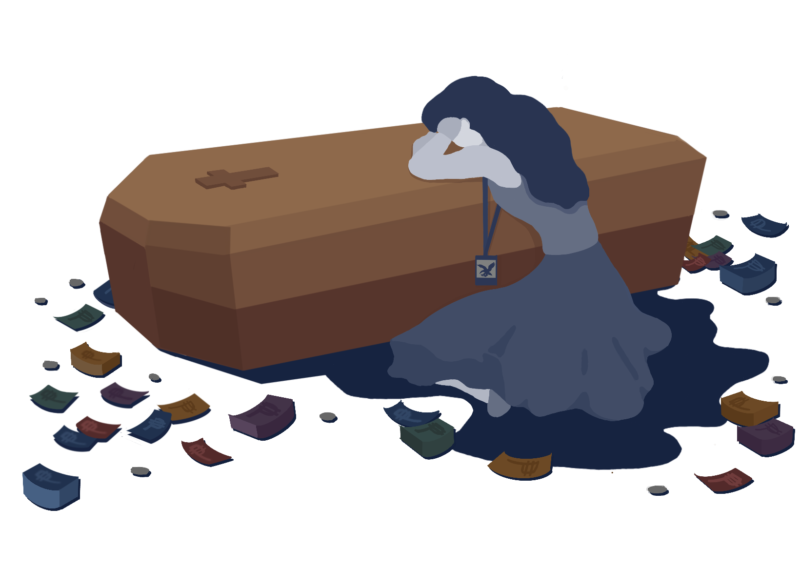During the Intersession semester of SY 2017-2018, the Sanggunian introduced the Matteo Up All Night Project, which extended the services of the study hall’s outdoor balcony to twenty-four hours for finals week. Throughout its implementation, the Sanggunian’s Department of Strategy and Development conducted a survey to gauge its efficacy, availability, and quality. Most of the student participants gave these factors favorable remarks, which attests to the initiative’s success.
In line with this, the Sanggunian has shifted their attention towards the New Rizal Library as they aim for a similar initiative for the building. The idea was spurred in part by an anonymous entry posted on the Ateneo Freedom Wall Facebook page on October 24, 2018, which directly petitioned that the library be extended to twenty-four hours and has since garnered considerable attention and agreement online.
In response, the Sanggunian conducted an online survey regarding the extension of the New Rizal Library’s operations from twelve hours on weekdays and ten hours on Saturday to twenty-four hours. The research concluded that the participants’ primary justification for the extension is to make the most use out of the school’s resources. The research report explains that “[the extension] would help people research and study as they are given more time to maximize the resources of the library.”
“Instead of going out, we want [students] to use the resources available within the premises of the school,” Sanggunian President Hyacenth Bendaña says. Additionally, she cites the safety of students and monetary cost as further grounds for consideration. Underscoring the latter, she mentions how some students can’t afford to study in coffee shops and other outside establishments all the time.
Furthermore, the survey also considered which floors students wanted to have opened overnight. Majority of the respondents opted for the third and fifth floors, which house the information commons and study hall, respectively.
Administrative considerations
Extending the hours of the New Rizal Library past 7:30 PM, the current hour at which most of its facilities close on weekdays, would require a large commitment of resources and funds. Director of the Office of Facilities and Sustainability Engineer Elias Pan notes based on rough estimates of cost that the library hours can only be extended until 10:00 PM without a significant change in the cost of keeping it open in full operation. The primary concern is the overall cost of the utilities that will be used during this time. He notes that the air conditioning units, in particular, consume a significant amount of electricity, and constitute the brunt of the cost of keeping the library open.
To extend library hours, it will also be necessary to add to the personnel currently attending to the building’s maintenance and security. Pan emphasizes this point especially since the maintenance personnel typically only stay until 10:00 PM at the latest. Should the Rizal Library need to be kept open past this time, he says there will be a need to keep technicians and other library personnel on site to operate and address issues associated with the computers and other equipment.
Another factor to consider is the net effect of the night differential, which is a compensation incentive given to workers of night shifts. The cumulative effect of the additional operational and maintenance costs of keeping the library open, even only until 12:00 AM, could potentially increase overall costs by at least 40% based on a rough estimate given by Pan.
Rizal Library Head of Operations Engracia Santos asserts that reviving the project for the Matteo Ricci Hall is still the optimal choice. In terms of administrative challenges, extending the New Rizal Library operating hours will bring in more expenses due to library staff and security working overtime, as contrasted to only security working overtime in Matteo Ricci Hall’s case. “We are much more hesitant when it comes to increasing the hours of the staff since so far there hasn’t been any service to be extended which requires [it],” Santos says.
Although she is amenable to opening just the ground floor to reduce expenses, Santos finds its capacity of seventy to be too low, especially if used during finals week. In contrast, by extending its two floors, Matteo Ricci Hall will be able to provide both computers and discussion spaces, which fulfills the demands of the students. It also offers more capacity in these spaces compared to the New Rizal Library.
In this light, the Matteo Ricci Hall looks to be the more logical option to extend its hours over the New Rizal Library. Santos also hints at using the allocation given by the administration to restructuring the Matteo Ricci Hall layout, with the second floor being occupied by the computer stalls with individual study spaces on one side and the study hall on the other. This will make it so that only the second floor will have to be kept open overnight, in turn keeping overtime costs at a minimum.
Additional services
Besides the library, the possibility of opening other facilities on campus past their typical working hours is also getting some traction.
According to Pan, there is an occasional demand from students to keep the laboratories open overnight, particularly the ones dedicated for the Chemistry and Biology departments. These are typically done for students working on time-sensitive experiments that require constant supervision. In such cases, there is usually no additional security, but both the students and their teacher or instructor chaperone have to secure a permit to remain on campus and to ensure that the security personnel in the buildings concerned can keep track of them. However, this is generally done on a case-to-case basis, and Pan specifies that his office has not received any requests to permanently extend laboratory hours. These appeals can be run through the departments in question whenever necessary.
As for cafeterias, while students have expressed some level of interest in having longer hours for both the Gonzaga Cafeteria and the JGSOM Student Enterprise Center (JSEC), Ateneo de Manila Multi-Purpose Cooperative (AMPC) Chairperson Rafael Saldaña states that there is no sufficient demand to warrant extending their hours significantly. However, they are still willing to consider it should the need arise.
If cafeteria operating hours are extended, Pan states that the primary adjustments in funding lie in the addition of security and maintenance personnel, with minimal cost for utilities. Saldaña, however, identifies another concern, pointing out that the canteens operated by AMPC have recently been running on subsidies from the cooperative. “If it will not earn, then it will be a losing proposition […] we’re open to the idea as long as we will not subsidize the operation.” Aside from extending worker hours, a significant subsidy from the University will also be needed to shoulder the costs.
The possibility of keeping large cafeterias open is slim, given the large volume of resources that the maintenance and operations will require. Depending on whether Matteo Ricci or the New Rizal Library are kept open, the food concessionaires at these places may extend their hours to accommodate this change. Pan also mentions the cafeterias at the Cervini Residence Hall and the University Dormitories as viable alternatives, as they are typically open until 10:00 to 11:00 PM.
According to Loyola Schools Head of Campus Security Detachment Darwin Enguerra, extending hours should not pose too much of a security risk to the students on campus. The primary difference lies in the rearrangement of shifts and the addition of a night differential to the wages of the security guards on campus. Because of the reduced activity, the University only keeps a skeleton force for security personnel on campus at night. This is a small force of patrolling officers, often with only one guard keeping watch over several buildings. In certain cases, such as the cafeteria and library, it will be necessary to add more postings to ensure that the students are safe.

Weighing the cost
Although the proposal raised by the Sanggunian is founded on valid concerns, the ramifications simply outweigh the benefits. In terms of finances, such a proposal is estimated to significantly increase expenditures. Moreover, the change will also pose logistical challenges, especially with security and maintenance personnel.
Santos also emphasizes the students’ awareness of the project. “We cannot justify opening [the New Rizal Library] if, in the end, only a few students will make use of the services,” she says. This is consistent with the findings recorded during the Matteo Up All Night project, where “after 12 midnight, the number of students making use of the service begins to drop,” she adds.
In line with this, the Rizal Library administration has opted to re-implement the Matteo Up All Night project. The project’s revitalization lasted from December 3-16, encompassing the semester’s final weeks.
Overall, the decision to re-implement Matteo Up All Night is a safer substitute to the Sanggunian’s initial proposal. Albeit lacking in physical academic resources, the past implementation of Matteo Up All Night has proven to work well with students, as it addresses their need for a work-conducive place for study. It is also advantageous for the administration, as the study hall is considerably smaller and easier to manage. Overnight security and overall costs will also be kept to a minimum, as only the second floor will be open. Furthermore, since it is being implemented on a regular semester instead of intersession, there is a potential increase in service usage and cost-efficiency.
Regardless of whether or not the Rizal Library administration will consider the proposal, the existence of such a collaboration between both the students and the administration in addressing these concerns is a step in the right direction. This cooperation sets a precedent for future collaborative efforts to address significant student concerns in a manner that is beneficial to both the school and its students.
What do you think about this story? Send your comments and suggestions here: tgdn.co/2ZqqodZ







